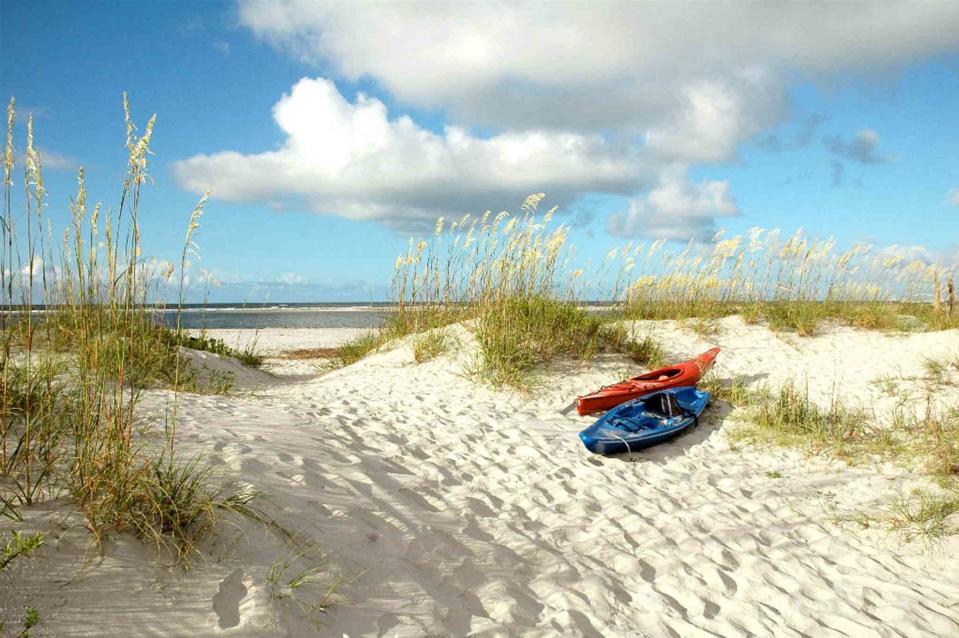Fripp Island Celebrates The Glory Of The Unspoiled Lowcountry
Holding on to the lasting beauty of Fripp Island.

Courtesy Discover South Carolina
It was many years ago when I remarried and came to live on Fripp, a barrier island off the coast of Beaufort, South Carolina. At the time, my husband was one of the few full-time residents there and was anxious to show me my new home, a place he’d fallen in love with. Although he was a novelist known for his poetic depictions of the Lowcountry, he claimed he couldn’t describe Fripp Island. I had to see it for myself.
I dared not tell him I was skeptical. During our courtship when we lived two states apart, I heard much about the beauty of Fripp and how I’d love it. I wasn’t so sure. Fripp might be partly residential, but it’d been developed as a resort with golf courses, tennis courts, and vacation rentals. Having been raised near Florida’s Emerald Coast, I knew what that meant: ritzy clubs, fancy spas, and luxurious Caribbean-style houses. That was all fine for a week in the summer, but wouldn’t it be like living on a cruise ship? I was a barefoot country girl, a tree-hugging nature lover, not a beach person—and certainly not a posh one. On my initial visit to Fripp, I arrived at night during a downpour, so my first real sight of my new home came the next morning. My soon-to-be husband led me to the golf cart as he was happily jabbering away. Not wanting to disappoint, I hid my apprehension and settled back for the tour.
Everything became clear as I explored the most enchanting place I’ve ever seen with the man I loved stopping often to point out his favorite spots. Instead of the expected stucco mansions, most of the homes were weather-beaten cottages hidden behind moss-draped oaks and towering oleanders. Fripp is a designated wildlife sanctuary where gators lurk in murky lagoons, herds of deer roam, and egrets festoon tree branches like white blossoms. Tidal creeks weave through the marshes, and on the beach, sea oats beckon from the ever-shifting sand dunes. I watched pods of dolphins frolicking in foam-capped waves as gulls squawked overhead and surprisingly graceful pelicans floated by. I had trouble taking in everything. Instead, I pointed and gasped and marveled at the unspoiled absolute glory of a place like no other.
My husband had been right; I fell as hopelessly in love with Fripp as I had for him. When his health declined and we moved into town, we mourned together. After his death, I couldn’t bear to go back to Fripp. The house we’d shared sat empty until it was reluctantly sold. I eventually returned, alone and heavyhearted, to revisit the place I’d adored so fiercely. Had it changed, became the posh place I’d previously feared it to be? Once again, I entered with trepidation. And there I stood on the beach, as the setting sun turned the ocean to gold and shorebirds chased the receding tide. “Nothing gold can stay,” the poet says. But on Fripp Island, I’ve found that it lingers.
For more Southern Living news, make sure to sign up for our newsletter!
Read the original article on Southern Living.

